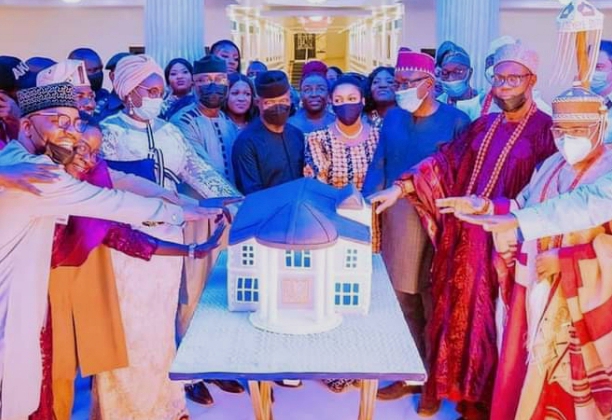LEADERSHIP, DEMOCRACY AND DEVELOPMENT: A PARADIGM RELATIONSHIP
Published
11 years agoon
By
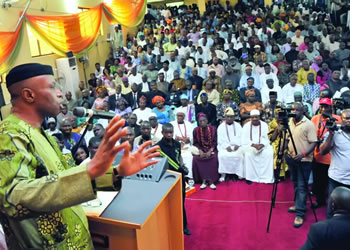
BY PROFESSOR A. BOLAJI AKINYEMI B.A., M.A., M.A.L.D., D.PHIL (Oxon), CFR, FNIIA
A PUBLIC LECTURE TO COMMEMORATE THE INAUGURATION OF THE GOVERNOR OF ONDO STATE, 23 FEBRUARY 2013 AKURE, ONDO STATE, NIGERIA
I must start on a note of congratulations. I congratulate the people ofOndoStatefor their good fortune in having as Governor, His Excellency, Dr. Olusegun Mimiko for the past four years. Why should I congratulate you.Because in the past four years, Governor Mimiko has changed the face of Ondo state to the benefit of Ondo people. Let me cite just one example at this juncture. I am going to quote from an international report. A report prepared under the auspices of the Centre For Strategic and International Studies had this to say about the Abiye Initiative: “The Initiative has won early praise from maternal and public health experts inNigeriaand beyond. The programme is seen by many as a promising home-grown effort to build a comprehensive, sustainable, and evidence-driven approach that ensures that women have reliable access to quality maternal health services”(p.2). What has been said about the Abiye Initiative can be said about his initiatives in education, urban development and other fields.
Let me also extend this felicitation to the Yoruba nation,Nigeriaand the Black race. The reason for the linkages will become very obvious later. I also congratulate the people ofOndoStatefor having had the good sense of re-electing Governor Mimiko for a second time. I know that some have said that in that multi-candidate election, Governor Mimiko did not win an outright majority. True enough. I am a political scientist, and I can declare without any fear of contradiction that in most elections in free and democratic countries, candidates and parties often win with narrow majorities. A few examples will suffice: In 1960, John F. Kennedy won with 49.72% of the votes. In 1968, Richard Nixon won with 43.42% of the votes, In 1992, Bill Clinton won with 43.01% of the votes cast. In 2000, George Bush, Jnr. Won with 47.87% of the votes cast. If we go way back, in 1860, Abe Lincoln won with 39.65% of the votes cast. InBritain, in the 2010 elections, the Conservative party under David Cameron which is the senior party in the government won only 36.1% of the votes cast.
It is only where elections are rigged or where it is only a one-party system that winners claim outlandish majorities.
I congratulate Governor Mimiko himself for having won a second-term election. I thank him as a Yorubaman, a Nigerian and a Blackman, for giving me something to boast about in the achievements of a fellow Yoruba, a fellow Nigerian and a fellow Blackman. At the same time, I commiserate with him. I feel sorry for him because having set such high standards of achievement in his first term, he is going to be under considerable pressure to maintain that high level of achievement for the second term. If your child has been recording a position in class of 10 out of 30 students, you heap praise on him or her when he or she moves to a position of 5 out of 30. But if the same student has always been among the first three in the class, and all of a sudden, he falls to a position of 5, most parents will reward that kid with a tongue lashing if not worse. “So what happened to the first three positions? Did those kids have two heads?” And to the mother, the father bellows“come and ask your child whether I sent him to school to play and waste my money” etc. So now that Governor Mimiko scored a distinction in the first term, Iam also expecting another Grade A performance during this term. And so say all of us.
Some of you may be tempted to ask: What does he know about Ondo State? I am not a new comer to this state. I have been visitingOndoStatesince the 1950s. My father, the late Canon J.A. Akinyemi was a member of the Action Group and I used to accompany him to Action Group conferences in Owo. That was in the 50s. In the 90s, I was the leader of the Afenifere assessment team who visited Ondo state to assess the projects of theAlliancefor Democracy Government then under Governor Adefarati. Your present Governor was the Commissioner for health then. I was also here to deliver the Democracy Day lecture in 2000. Since the advent of the Mimiko Administration, this will be my third time of visiting. The first two were private visits, and on each occasion, I drove round with my eyes open. Before the election period in 2012, I came to Akure on a private visit and the Governor himself, around midnight, without escort, without siren and without advance notice, drove me all around Akure for me to see the projects he had on the ground— the mega schools, the market, the hospital, the proposed mechanic place, the electrification of the city roads—. At the hospital, he was mobbed by patients, medical staff, family members of patients. These people were not members of a rented crowd. I know Ondo people very well. They don’t suffer fools gladly. They were happy to see the Governor; he exchanged pleasantries with them, no gun-toting security pushing anybody back. This was true governance at its best.
I have gone through giving you these details to let you know that I have seen it all. Fredrick Nietzsche, a German philosopher, in his TWILIGHT OF THE IDOLS wrote “to learn to see – to accustom the eye to calmness, to patience and to allow things to come up to it; to defer judgement, and to acquire the habit of approaching and grasping an individual case from all sides. This is the first preparatory schooling of intellectuality.” I know what Ondo state looked like in the 50s at least as seen through the eyes of a young adult; I have seen what it looked like in the 1990s and what it looks like now. I am impressed by what I see. I came, I saw and I believed. Veni, Vidi, Credi .It has been a long journey and you should be proud of how much things have changed within such a time frame.
Why do I wax so effusive about the developments in Ondo state? The answer lies in the linkages which I established a few paragraphs ago. I was born into Western Region of Nigeria in the early 1940s. Then it becameLagosStateandWesternState. Then it becameLagosState, OgunState,OyoStateandOndoState. Then it becameLagosState,OgunState,OyoState,OshunState,EkitiStateandOndoState. All through these changes, however, one thing remained constant: my Yoruba identity, an identity which I proudly share with all the inhabitants of these six states and those in the diaspora. Therefore success in any part of Yoruba land is also my success. As the Eyo masquerade inLagoswill say: “Mo ba o yo. Mo sibara mi yo.”
The linkage is wider than this. Any happening in any part ofNigeriareflects on all parts ofNigeria. It is not for nothing that the CSIS report earlier mentioned referred to “OndoState, in the South West region of Nigeria” The report itself draws the wider inference when it wrote: “The purpose of this report is to highlight one such effort, which warrants encouragement and bears watching as Nigeria, the United States, and the broader global community seek more effective and innovative approaches to the challenge of maternal mortality”(p.3).
I am an international relations scholar and it does not take rocket science to observe that the rest of the world cannot tell the difference between one Blackman or another. And when the speech gives the game away, it is only as far as making a distinction between an African and an American. To the extent that the rest of the world cannot differentiate between one Blackman and another, the acclaimed success of a programme inAfricarubs off on all Africans in public perception.
When I got the invitation, signed by the Governor personally to deliver this lecture, the theme I was given was “ELECTORAL SANCTITY, RESULT ORIENTED DEMOCRATIC GOVERNANCE SOCIO-ECONOMIC DEVELOPMENT AND THE PLACE OF NIGERIA IN THE GLOBAL COMMUNITY”. I thought this is what you get with an intellectual-activist as Governor. I thought I would need a Nobel laureate to translate for me. I carried out a deconstruction exercise of the theme to come up with a title that will keep faith with the theme. The title I came up with which the Governor graciously accepted is LEADERSHIP, DEMOCRACY AND DEVELOPMENT: A PARADIGM RELATIONSHIP.
In his speech in Accraduring his first trip to Africaon July 11, 2009, President Obama made his famous remark that “Africadoesn’t need strong men, it needs strong institutions. In the 21st century, capable, reliable and transparent institutions are the key to success—– strong parliaments, and honest police forces; independent judges and journalists; a vibrant private sector and civil society….” Anybody listening to that would agree that the declaration was in tandem with the popular Nigerian saying that “nobody is indispensable”.
My own reading of history has led me to be less categorical than Obama. Sometimes in 2008, in the course of a lecture celebrating the first Chairman of the EFCC, Mallam Nuhu Ribadu, I had taken the opposite position that a tree can make a forest.
Historical analysis of periods in a nation’s history demonstrates the decisive impact that strong leadership whether good or bad can have on the life of the nation. Even theUnited Stateshas not been an exception to this. Franklin D Roosevelt assumed office as the President of theUnited Statesat the peak of the economic depression when millions were out of work, banks were failing and what was even more ominous, many Americans out of despair were starting to look at the German experiment under Hitler and the Nazis as a solution to American problems. The previous administration under President Herbert Hoover had proved not only incompetent but had no clue as to the way forward. It took Franklin Roosevelt and his New Deal programme to not only rescue theUnited Statesbut to position theUnited Statesin such a way that it was able to rescueEurope, militarily and economically. Yet, beforeRoosevelt, all the institutions were in place: the Presidency, the Congress and the Judiciary. InEurope, Winston Churchill was a classic example of the strongman vis a vis the fate of the nation. Before Churchill became the Prime Minister, Hitler had struck terror into the hearts of the Britons. Neville Chamberlain, the Prime Minister before him was known as the apostle of appeasement, prepared to give away anything and everything to Chancellor Adolf Hitler to avoid a war. All the institutions were there: Parliament, the Monarchy, the Church, the Civil Service etc. But they were all infected with the virus of defeatism. Then came Winston Churchill. Nothing defined him and what he infused into theUnited Kingdomas his famous speech “We shall not flag or fall. We shall go on to the end. We shall fight inFrance, we shall fight on the seas and oceans, we shall fight with growing confidence and growing strength in the air, we shall defend our island , whatever the cost may be. We shall fight on the beaches, we shall fight on the landing grounds, we shall fight in the fields and in the streets, we shall fight in the hills; we shall never surrender..”
Of course, there is the example of Adolf Hitler himself who turned a defeated and dispirited nation,Germany, into a mighty force that at one time occupied ninety percent ofEuropeand took the combined force of the whole world to defeat him. I do not condone or commend Hitler’s policies. But in the life of the German nation, one man made the difference.
In the modern period, names of leaders which come to mind include Martin Luther King jr in the United States., General Park Chung-Heein South Korea, Lee Kwan Yew of Singapore and other leaders of the Asian Tigers, Margaret Thatcher of Great Britain and of course Mao Tse Tung of China. In the case of Martin Luther King, there were several civil rights movements in existence, including the National Association for the Advancement of Coloured People (NAACP) which was formed before King was even born. Yet it took the peculiar personality of King, with a steely commitment to non-violence in the face of extreme provocation and white violence, violence which ultimately cost him his life to capture world indignation over racism inAmerica. In the case of Margaret Thatcher, she dismantled the welfare state system inBritainand reducedBritainfrom a society to just a collection of atomistic individuals.
Each one of the Asian leaders inherited a rundown and impoverished nation and through sheer forceful personality transformed their nations into the prosperous tigers.
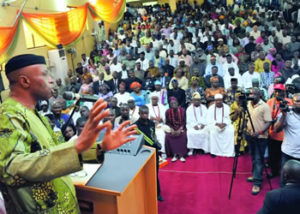 Coming to the home front, we all swear by the name of Obafemi Awolowo, at least in this part of the country. The greatest political insult one can hurl at an opponent is to call him an anti-Awoist and the greatest accolade one can be draped with or drape oneself with is to be called or to call oneself an Awoist. Yet we all seem to forget that Chief Obafemi Awolowo was the Premier of the Western Region for only five years during which he seized a basically peasant economy by the scruff of its neck, introduced free education, free health, first ring road in Africa, first Television station in Africa, Liberty stadium, Cocoa House, which was first sky-scrapper in Africa, a string of firsts still unmatched in these days of petrol dollars. Even the charlatans in or out of office who are busy looting the public treasuries lay claim to the Awolowo heritage.
Coming to the home front, we all swear by the name of Obafemi Awolowo, at least in this part of the country. The greatest political insult one can hurl at an opponent is to call him an anti-Awoist and the greatest accolade one can be draped with or drape oneself with is to be called or to call oneself an Awoist. Yet we all seem to forget that Chief Obafemi Awolowo was the Premier of the Western Region for only five years during which he seized a basically peasant economy by the scruff of its neck, introduced free education, free health, first ring road in Africa, first Television station in Africa, Liberty stadium, Cocoa House, which was first sky-scrapper in Africa, a string of firsts still unmatched in these days of petrol dollars. Even the charlatans in or out of office who are busy looting the public treasuries lay claim to the Awolowo heritage.
All these examples show the enormous difference that an individual can make in the life of a nation.Two inferences which can be made from the examples cited above are rather obvious. Where the challenges faced by a nation are so enormous as to challenge the very foundation of that nation, individual leadership is more important than the institutions because at that stage, even the institutions of the state, no matter how sacred are in mortal danger. This is what led Horace to say “misfortunes, untoward events, lay open, disclose the skill of a general…”
The second inference is that when you are at ground zero as most of the developing countries found themselves at independence or Awolowo found the Western Region in the 1950s or Mimiko found Ondo state in the 2000s, a strong leadership is a desideratum.
A leader according to Napoleon Bonaparte is a “dealer in hope” or as John Quincy Adams, the sixth President of theUnited Statesput it “if your actions inspire others to dream more, learn more, do more, you are a leader”
I will return to this leadership theme later.
When I was considering the wording of the topic, I put Democracy before Development. I could easily have put Development before Democracy because the jury is still out whether democracy leads to development or whether it is development that leads to democracy.
From the historical analysis above, one can make some inferences. Democracy was able to respond favourably in the case of theUnited Statesby producing Franklin Roosevelt who succeeded in rescuing the American economy from collapse. But it was touch and go as the same democratic elections had produced President Herbert Hoover who proved incapable of addressing the economic collapse that public opinion was starting to flirt with the German Nazi experiment. Even though economic issues were not at stake inBritain, there was also an upsurge in right wing fundamentalism before Winston Churchill stepped into the breach thus ensuring the survival of democracy inBritain. But democracy failed woefully inItalyandGermanyproducing fascist regimes which rescuedGermanyandItalyfrom economic ruin.
The tentative conclusion we can reach at this point is that well established and well entrenched democracies have the capability to lead to and sustain development. It is the capability that is certain. Whether that capability will translate into actuality is another question entirely. It depends on a lot of factors, one of which is leadership.
But that still begs the fundamental question: which comes first, democracy or development? Actually, it is authority that comes first. But that authority has usually been clever enough to pass off itself as a product of democracy. Only 55 delegates, all landowners and picked by fellow landowners drew up the American constitution, and only 39 signed it. Although called a democracy, the political system was controlled by the propertied class. Then gradually, the suffrage was extended to include tax payers, then extended to white men, then extended to white women, then extended to Blacks, a process that took over 200 years. Yet, at each stage, it was called a democracy. The British system proceeded along similar lines, with each stage marked by gradual assimilation and expansion until you got to the stage of universal suffrage.There was the so-called Great Revolution of 1688 in Britain which embodied a limited expansion of the political franchise and which led to gradual expansions of the franchise in 1832, 1867, 1884 and then the final universal suffrage in 1928.
But the critical point is that unless it is a case of a revolution, the expansion is into an already established system with fixed parameters and fixed rules. Unless we are involved in gimmickry, no system short of adult suffrage should be called democratic. As Aristotle put it, “The real difference between democracy and oligarchy is poverty and wealth. Wherever men rule by reason of their wealth, whether they be few or many, that is an oligarchy, and where the poor rule, that is democracy” Economic development accompanied each stage from wealth accumulated from landownership to wealth accumulated through industrialization. To that extent, I would suggest that the history ofEuropeand theUnited Statesprovide the adequate answer that development breeds democracy and not the other way around.
Let me further illustrate this point by the following two quotations from two of the prominent delegates to the United States Constitutional Convention who went on to become Presidents of theUnited States. The first quotation is from James Madison:
In England, at this day, if elections were open to all classes of people, the property of landed proprietors would be insecure. An agrarian law would soon take place. If these observations be just, our government ought to secure the permanent interests of the country against innovation. Landholders ought to have a share in the government, to support these invaluable interests and to balance and check the other. They ought to be so constituted as to protect the opulent against the majority. The Senate, therefore, ought to be this body; and to answer these purposes, they ought to have permanency and stability.”
The other quotation from Alexander Hamilton:
“All communities divide themselves into the few and the many. The first are the rich and well born, the other the mass of the people. The voice of the people has been said to be the voice of God; and however generally this maxim has been quoted and believed, it is not true in fact. The people are turbulent and changing; they seldom judge or determine right. Give therefore to the first class a distinct permanent share in the government. They will check the unsteadiness of the second, and as they cannot receive any advantage by a change, they therefore will ever maintain good government. Can a democratic assembly, who annually revolve in the mass of the people, be supposed steadily to pursue the public good? Nothing but a permanent body can check the imprudence of democracy. Their turbulent and uncontrolling disposition requires checks.”
Those two quotations eloquently prove my point. To further reinforce my point, John Adams, the second President of theUnited Statessaid “Remember, democracy never lasts long. It soon wastes, exhausts, and murders itself. There never was a democracy yet that did not commit suicide.” TheUnited Statesso-called democracy was in fact founded on a fear and a disdain for democracy. But for philosophical reasons, it has to be sold to the people as democracy; just as the Marxist countries had to sell their own brand of democracy as Peoples’ democracy. And so democracy ends being whatever is called democracy. It is all reminiscent of the dialogue between Alice and Humpty Dumpty in Lewis Carroll in Alice Through the Looking-Glass:
“When I use a word”, Humpty Dumpty said, in rather a scornful tone, “it means just what I choose it to mean —- neither more nor less.” “The question is” saidAlice“whether you can make words mean so many different things.”
An alternative paradigm model in the Democracy-Development dichotomy is derived by the historical experiences ofRussia,China,South Korea,Singaporeand other Asian tigers. They were pure dictatorships driven development leading to phenomenal growth through sustained economic planning and discipline and all dragging their countries from theThird Worldto theFirst Worldto borrow the title of the book onSingaporeby Lee Kwan Yew. Whether Marshal Stalin in the Soviet Union, Mao Tse Tung in China, General Park Chung-hee in South Korea, Lee Kwan Yew in Singapore, General Suharto in Indonesia and Tunku Abdul Rahman in Malaya, the story was the same as strong leaders with imposing personalities and a sense of mission led their countries through economic growth to become economic power houses. It was only after economic development, that political freedom and political liberalization were gradually introduced in small doses, thus economic development was driving democracy. In the western sense of the word, only South Korea would pass for a full-fledged democracy.However, by some stroke of irony, this was the same path that the Western countries followed, that is if you agree with my historical analysis earlier adumbrated.
Indiahas always presented a problem for a political scientist in terms of systemic analysis. It credits itself and it is credited as the largest democracy in the world. Yet for most of its post-independence period, it has been ruled by one party, a father Jawaharlal Nehru, a daughter, Indira Gandhi, a grandson, Rajiv Gandhi and the power behind the throne now is the wife of the grandson, who is just waiting for her own son to mature to become the fourth generation of Gandhi that will rule India. Even though there is one person, one vote, the wayIndiais actually carved up into political fiefdoms beggars belief. Humpty Dumpty would be clearly delighted as to the elasticity of the word DEMOCRACY.
I suppose some of you are wondering when I will apply this analysis toNigeria. After all, here we are celebrating a democracy-driven development icon. I concede that in Ondo,Lagos, Rivers andEdostates that I have visited, I can see evidence of dividends of governance, in this case democratic governance. Is there not something unique in the sense that of these four states, three initially were installed through the intervention of the judiciary? Even if we ignore this factor, we still need to ask whether on the national scale, we can claim to be operating a democratic system in Nigeria.Or is it a civilian system? I will not pursue this trend of thought further for now. To move on, I will concede without much conviction that we are operating a version of democracy (civilian rule) especially in contradiction to the years of military rule.
Irrespective of the cyclical game between the military and the civilian political elite in the governance ofNigeria, the biggest threat to our putative democracy is not from the military but from the state of our un-development. In a lecture delivered by Oby Ezekwesili at the convocation ceremony of the University of Nigeria, Nsukka, some alarming figures as regards the state of poverty in Nigeria were given: in 1980, we had 17.1million poor people in Nigeria, in 1985, we had 34.5m, in 1992, we had 39.2m, in 1996 we had 67.1m, in 2004, we had 68.7m, and in 2010 we had 112.47 poor people.
Originally, I was not going to go beyond this set of figures but the gravity of the danger we face may be lost in the generality of these figures that I have decided to deconstruct what these figures mean in terms of poverty.
The 2011 Human Development Reportissued by the United Nations Development Programme ranksNigeria at no 156 out of 186 countries, no 1 being the best and no 186 being the worst. Among countries ranked higher than Nigeria in terms of Human Development are Angola (148), Bahamas, (53), Bangladesh (146), Botswana (118), Cambodia (139), Cameroon (150), Cape Verde (133), Congo (137), Egypt (113), Equatorial Guinea (136), Fiji (100), Gabon (106), Ghana (135), Iraq (132), Jamaica (79), Lebanon (71), Namibia (120), even the Occupied Palestinian Territory (114).
There are four categories into which all countries are classified, namely 1) Very High Human Development, 2) High Human Development, 3) Medium Human Development, and 4) Low Human Development.Nigeriais classified into the fourth category. African countries classified higher thanNigeriaincludeSwaziland,Congo,Equatorial Guinea,Ghana,Cape Verde,Morocco,South AfricaandNamibia.
Life Expectancy inNigeriais 51.9 years compared withGhanaat 64.2 years,Cape Verdeat 74.2 years,Moroccoat 72.2 yrs andEgyptat 73.2 years.
A set of statistics which should be of utmost interest to the Abiye initiative is that dealing with the category of “Births attended by skilled health personnel” in terms of percentage. InNigeria, it is 39% compared toSwaziland(69%),Congo(83%),Equatorial Guinea(65%),Ghana(57%),Cape Verde(78%),Morocco(63%),South Africa(91%),Namibia(81%),Botswana(95%) andCuba(100%).
Why have I all of a sudden introducedCubainto this calculus?Cubais the country that I know that has not only a surplus of doctors but the best healthcare system in the world. Yet the country is short of things whichNigeriacan easily supply. Let me suggest a scheme. When the British colonial authorities came here, they established a Government Reserved Area (GRA) in every urban centre all over the country. Suppose as a Federal-State scheme, we were to establish a GRA in every Local Government or dare I say it in every Ward (there are only 9572 wards in the country). In each ward a Government development area is built consisting of a cottage hospital, an elementary school or two, a secondary school, a mini-secretariat to cater for the roads and these other government institutions. Attached to it will be a housing estate for the staff of these institutions. Nigeria should then approach Cuba for a supply of nurses and doctors to man the health institutions, in exchange for building an oil refinery in Cuba and supplying crude oil for refining there and supplying the refined needs of Cuba and selling the rest at the world market. The Nigerian staff for the other institutions will be from the bloated civil service by grading those who agree to go and serve there at a grade higher than they will occupy if they stay at the capitals. Just think about it in terms of the positive effect onNigeriadevelopmental projectiles.
Now back to present day abysmal statistics. For every 1000 births, Nigeria records 138 deaths, for Senegal it is 93, for Madagascar it is 58, for Bangladesh it is 52, for Sao Tome it is 78, for Kenya it is 84, for Swaziland, it is 73, for Ghana it is 69, for Cape Verde, it is 28, for Namibia, it is 48. Population in severe poverty,Nigeriarecords 34%,Sao Tome and Principe10.7%,Kenya20%,Swaziland13%,Ghana11.4%,South Africa2.4%,Egypt1%,Namibia14.7%.
The accumulated totality of these statistics do not reflect the tragedy that has befallenNigeria. The real tragedy is that we have bred several generations who have lost hope in today and tomorrow. They have given up onNigeriabecauseNigeriahas given up on them. I belong to a generation, and I am sure some of you also belong to that generation, who grew up having faith inNigeria. Our expectations were that the sky was the limit forNigeria. My generation was offeredUnited StatesGreen cards without asking and we turned them down because we wanted to come home and we knew there would be opportunities waiting for us to join in the task of nation-building. Now, our youths and even our elders would go through hell to seek US visas. They would commit any atrocity to secure foreign visas and they would endure any hardship and subject themselves to any danger to escape from this country.
Quite recently, I came across an article titled,CARPE DIEM NATION, by David Brooks (International Herald Tribune,February 12, 2013). The views expressed in that article encapsulate what I am trying to say, and I will share some of the views with you:
“Europeans who settled America gave their lives a slingshot shape. They pulled back so they could shoot forward. They volunteered to live in harsh conditions today so their descendants could live well for centuries. The pioneers who travelled West did the same thing. So has each generation of immigrants —sacrificing the present for the sake of the future. This slingshot manner of life led to one of those true national clichés: that America is the nation of futurity, that Americans organize their lives around romantic visions of what is to be.
In 1775, Sam Adams confidently predicted that the scraggly little colonies would one day be the world’s most powerful nation…..In his novel, “GIANTS IN THE EARTH”, Ole Rolvaag has a pioneering farmer give a visitor a tour of his land. The farmer describes his beautiful home and his large buildings. The visitor confesses that he can’t see them. That’s because they haven’t been built yet, the farmer acknowledges, but they already exist as reality in his mind”
As Americans even in the winter of their lives had a vision of the summer of their future, so did my generation at independence had a vision of LIFE MORE ABUNDANT for all. We embraced the philosophy ably put by the Dalai Lama who said:
I believe that the very purpose of life is to be happy. From the core of our being, we desire contentment. In my own limited experience I have found that the more we care for the happiness of others, the greater is our own sense of well-being.”
But now there are no more values to hold on to. Parents not only encourage their children to cheat to beat the system, they aid and abet the children in the nefarious activities. No one believes anymore in the concept of society. It is everyman for himself and God for us all. Perhaps bringing God into it might have had a salutary effect if not for the fact that Nigerians have created their own God in their own image. In my youth, to be accused of theft or any other criminal offence was tantamount to being banished from society. Not only for the accused but for his entire family. To be convicted was tantamount to suicide. But now, no one asks for the source of the wealth. People in jail, accused of murder run for and win elections. More than a score of members of the Nigerian Senate have EFCC court cases against them. Only inNigeriado you steal billions and escape with less than a million naira fine.
So, where and how did it all start to go wrong? What is the way forward? These two questions lead us back to the centrality of the issue of LEADERSHIP. It is not for nothing that the sub-title of the Report on the Abiye initiative was subtitled“WITH LEADERSHIP, PROGRESS IS POSSIBLE”. One of the comments made in the report apropos leadership was “Successful models can serve as an encouragement to policymakers and health implementers elsewhere and can offer practical examples of what is possible with local innovation, leadership and planning.”(p2).
Our leaders at independence did not have a collective vision of what type ofNigeriathey were going to build. If truth be spoken, there was no collective faith in the Nigerian project. Each of the Premiers with his political associates had a vision for his own region but there was no vision for the whole nation. There were no goals around which a consensus was built. Only three years after independence, whatever system existed was shattered by the thoughtless overthrow of the Western Regional Government. From then on, politics of development was replaced by politics of looting.
To move forward, the political elite must make a conscious effort to arrive at a consensus that will be the outcome of negotiation, give and take, compromises etc. The system to be put in place should not reflect temporary advantages secured through a temporary monopoly of power. We must find a way to building a nation where no man or woman is oppressed, where no man or woman is marginalized, where there is hope for everyone, where a man or a woman through hard work, honesty and integrity will have the opportunity to achieve his dreams. When dreams are killed and visions dulled, the nation is finished.As the Bible has warned us, in Proverbs, “for lack of vision, the nation perishes.”
This is not the responsibility for the many who are poor but for the few who are lucky to find themselves in a position of leadership whether political, economic, cultural, spiritual or traditional.
PROFESSOR A. BOLAJI AKINYEMI, D.PHIL (Oxon), CFR, FNIIA.

You may like
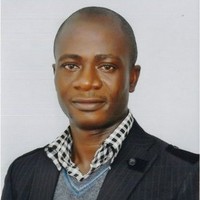
A Phenomenon at 50
Hitting the age of 50 is a landmark and a milestone to be celebrated. Fifty years and still counting, Aremo Olusiji Balogun, is a phenomenon and a case study in humanity.
He is an Associate Member, Chartered Institute of Personnel Management in Nigeria among others. He is the Founder of Ase Youth Association and several other organisations.
His company Promec Innovative Concepts was a child of necessity when his attempt to register Prince Royal Media Concept (Promec) at the Corporate Affairs Commission (CAC) met a brick wall.
Olusiji Balogun is a media guru and an organizational growth and business development expert with adaptable skills. He is able to use own initiative or work as part of a team. An efficient and effective Human Resources Manager, community worker, excellent communicator at all levels within and outside organizations; he has good problem solving and analytical skills with pioneering spirit.
Olusij’s specific interests include teaching and learning for new product development, business development, participatory social activities, keen insight into the needs of others and with high energy, initiative and focus, proven leadership skills including managing and motivating others to achieve objectives.
An effective community and social worker, he is fluent with information technology and capable of handling executive assignments and leadership. His other qualities include being positive with potential ideas, he has the ability to work with anyone under any condition or situation and contribute greatly to achieving the best goals of the establishment.
Oluwasijibomi Gideon Balogun was born on the 8th September, 1972 in Ondo town to the family of Samuel Olusegun Balogun and Mrs Grace Remilekun Balogun of Ase Akoko in Akoko North West Local Government Area of Ondo State. Both parents are retired Civil Servants. Olusiji was raised up with strong Christian virtue.
He had his early education at St. Luke’s Primary School, Akure but finished at Muslim Primary School, Ikaram Akoko, all in Ondo State, where he obtained the First School Leaving Certificate. He subsequently earned his West African Senior School Certificate in 1990 after attending Omoluorogbo Grammar School, Akure before proceeding to Ala Community Comprehensive High School, Ala-Elefosan, Idanre Local Government Area of Ondo State.
He also attended the Institute of Journalism and Nigerian Institute of Journalism, (NIJ), Akure Campus for his Diploma in Journalism and Public Relations, after a sojourn at Federal University of Technology, Akure (FUTA) briefly in the Institute of Science Laboratory Technology. He also went to Akwa-Ibom State Polytechnic, for his Higher National Diploma in Business Administration.
He later proceeded to the Ambrose Alli University, Ekpoma, Edo State for his Bachelor of Science Degree in Public Administration.
He is a Member of various professional bodies.
After leaving school, Olusiji started working as a freelance Journalist and Printer. He started Eminent Leaders Magazine in 1996 and registered Prince Royal Media Concepts with Corporate Affairs Commission (CAC), in 1999 which he upgraded to Eminent Leaders World Communications Limited publisher of Eminent Leaders magazine.
He worked with several organisations where he left indelible footprints of punctuality, hard work and professionalism. He worked with Mentors Communications, Abuja in different capacities. At Mentors Communications, he was the pioneer Editor of Rootswatch Magazine. He was Technical Assistant to the Managing Director of Quarry Managers Company in Abuja, headed by the late Abdulhakeem Amao. He was Special Event Manager with ITAD/MotMacdonald/PWC in Calabar and Water Supply and Sanitation Reform Programme (WSSRP) in Abuja. Both projects under the Integrated Water Resource Management European Commission.
He also had a stint with Hatlab Delight as a Business Development Manager and Head of Administration, O.T. Otis Engineering Limited. He resigned his appointment with Successory Nigeria Limited, Abuja, as Head of Project Management, in year 2019 to move his outfit forward.
Olusiji Balogun experience in politics is vast. His team helped installed Olusegun Agagu and Olusegun Mimiko as Ondo State Governors. He was the nucleus of Olusegun Mimiko Campaign Organisation for his second term when he was Editor of Grassroots Vanguard Newspaper of Grassroots Network.
He attempted to contest for the coveted seat of Ondo State Governor in 2020.
His experience in administration is versed as he is an Associate Member, Chartered Institute of Personnel Management (CIPM), Full Member Institute of Professional Administrators and Managers (IPMA) and many other professional bodies. He is a partner in many companies and Chief Executive Officer of Promec Innovative Entrepreneurship and Science Academy (PIESA) and several other firms.
He currently has his hand in farming as he started Ase Farms Nigeria Limited, asefarms.com.ng.
His hobby includes travelling, reading, surfing the internet and adventures.
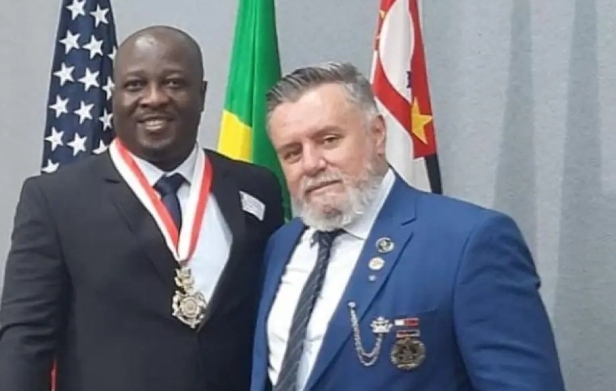
Ambassador Bayo Lawal Appointed American Diplomatic Representative in Brazil Ambassador Bayo Lawal, is truly a chip off the block. Born in Osogbo, Osun State of Nigeria, into the royal house of Olumodi Oyipiloye and Asuni Compound (Maternal) Osogbo. Bayo Lawal has become the first Nigerian to receive an American diplomatic status in Brazil. At a diplomatic ceremony held on the 17th of December, 2021 in the executive auditorium of the State Legislative Council, Saopaulo , Brazil, the American Government, through its Diplomatic Mission of International Relations (ADMIR) sworn In Ambassador Bayo Lukman Lawal as one of its appointed diplomatic representatives of the American diplomatic mission in Brazil. The humanitarian and diplomatic mission , which for the first time, included a Nigerian living in Brazil, inaugurated other important personalties in Brazil as members of its humanitarian project scheduled for Africa and Europe in the year 2022. Bayo Lawal is from a royal and polygamous house where hardwork is the hallmark. Though born by a successful business man popularly known as “Were Nise Oluwa”, Bayo Lawal has been a focused, hard-working and persevering youngman. His stint with the Osun State Board of Internal Revenue after his days at The Federal Polytechnic, Offa, set him in a progress pedestal. At the Board of Internal Revenue, his hardworking nature, made him a darling of all. Ambassador Bayo Lawal, before leaving the shores of Nigeria, originated the idea of honouring women in Nigerian society in 1999, tagged “Women Entrepreneur Merit Award” organised by Spotlight Media Ventures. He was then the PRO and Reporter for the firm. Ambassador Bayo Lawal and other personalities like the notable former Brazilian football captain, Capitão Cafu , the Saopaulo State First Lady, Mrs. Bia Doria, the Director of Federal Police, the Honorable speaker of the House of Assembly in Saopaulo , Representatives from several African and European countries witnessed the event. According to the President of the mission in Brazil, Dr. Fernando Navarro, the principal function of the American diplomatic mission of International relations is simple, it is humanitarian, it is helping to make the world a better place to live, he said the mission is to combat hunger and help the needy. Ambassador Bayo Lawal, who has lived in Brazil for over twenty years has worked in different functions in the international relations, he is an administrator who has led his team of excellent professionals within and outside Brazil. He is the presently the CEO of Mab Consulting Services, an International Trade and Business Development company with spread in the South America, Africa, China, USA, Europe and UAE. Bayo Lawal, who served as a Business Consultant at Grupo Empresarial Costa Negocios, taught courses in several English Schools in Sao Paulo, Brazil. He was Business English Teacher For Executives between 1999 – 2014. He worked at the Costa Negocios Group, FGV Projetos, Bimex Comercial Ltda., and many others. In his interview with Heritage news, Ambassador Lawal said “I am dedicating my achievements in Brazil to the Almighty God and also to my late parents, Prince Yekeen Lawal and Mrs. Bolanle Lawal. I also owe this success to my family in Brazil , my friends and colleagues who are always by me.” Ambassador Bayo Lawal said he is ready to work with all humanitarian organizations in Nigeria and overseas, using his office as an ambassador to help better the standards of every Nigerian, African immigrants in Brazil and around the world. He promised to lead projects of housing estates to Osogbo and other necessary locals in Nigeria.Ambassador Bayo Lawal is married to an Italian descendant Brazilian, Mrs. Sara Guerino Lawal and blessed with three children; Nathalie Mariam Oyenike Lawal, Derick Afeez Oyewale Lawal and Allan Khalil Babatunde Lawal.
DR TOLULOLA OLAJIBIKE BAYODE OPENS THE BIGGEST HOME FOR THE LESS PRIVILEGED IN AFRICA
Published
2 years agoon
December 28, 2021By
Iyalaje Tolulola Olajibike Bayode was born in Akure and hails from Oba-Ile. She’s the daughter of Chief Joseph Bayode and Pastor Mrs Bayode.
Tolulola Olajibike Bayode, RN, BSN, MD, is a trained medical professional but with an unusual passion for the well-being of the less privileged. Having travelled far and wide,Tolulola share an uncanny obsession of giving abandoned children and widows another shot at life,employing both her professional training and God given resources in assisting the less privileged at will leading her to initiating Dorian Home for Displaced Children & Mothers Initiative.
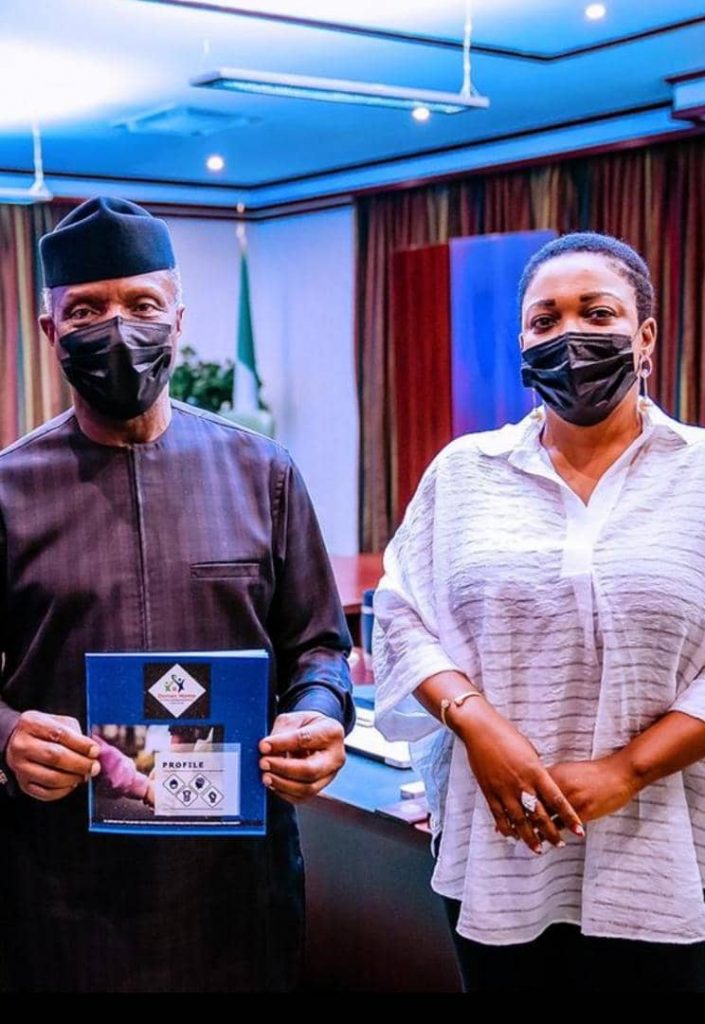
The African Union Economic, Social and Cultural Council appointed this Akure born philanthropist Dr. Tolulola Bayode as Head, Social Affairs and Health Cluster Committee. The job description entails implementing the overall goals of the Health, Humanitarian Affairs and Social Development portfolio in line with the AU Agenda 2063, Sets annual performance targets for the Health, Humanitarian Affairs and Social Development portfolio and report on annual progress to Specialized Technical Committees and AU Policy Organs.
In 2009, Dr.Bayode established Dorian Home for Charity and Social Development as a Non-governmental Organization (NGO). She’s the CEO/ President. Her personal encounter and experience in the course of discharging her professional duties, most especially in the Internally Displaced People’s (IDP) Camps, Community/Rural Medical Outreach programs, just to mention a few, afforded her a first-hand and comprehensive understanding of the plethora of unsavoury plights of women and children in our society.
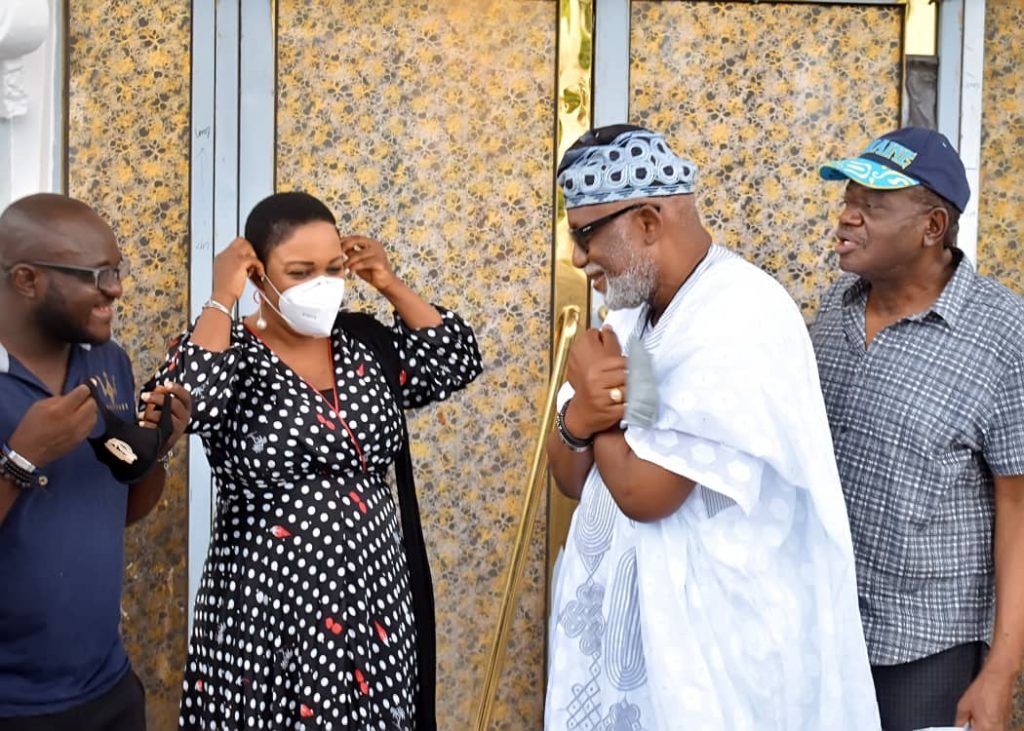
Dorian Home is the biggest orphanage home in Africa, consisting of 700 homes for children,500-capacity skill acquisition centre for women, large hall for events, modern clinic and a worship centre. Dorian Home for Charity and Social Development is situated at Akure, the Ondo State capital.
Described as the biggest orphanage home in Africa, the ultramodern facility worth $5million and was finally commissioned on the 14th of October 2021.
Dorian Home is not limited to taking care of just abandoned babies and widows but also focused on research, training, empowerment and mobilize women towards self-emancipation. A glamorous persona imbued with the philosophy of giving hope to the hopeless, creating a better living condition for the abandoned, Tolulola is in the forefront of Safe Haven Law in Nigeria – the leaving of unharmed infants with statutorily designated private persons so that the child becomes a ward of the state with proper upbringing.
At the commissioning of the home, Professor Yemi Osinbajo, the Vice-President of Nigeria, called for the provision of adequate welfare for vulnerable children and women in the society. The vice president commended Bayode for making provision of the basic needs of homeless children and women her passion. He said that about nine per cent of Nigerian children were homeless; a figure Osinbajo said seems to be growing rapidly. The vice president, however, called on well meaning Nigerians to join hands with the government to provide adequate care for the homeless children, saying that government alone could not do it. Osinbajo described the laudable project as one that would stand the test of time for the less privileged and empowerment for women in society.
During her speech, the Founder and President of Dorian Home, Dr Tolulola Bayode, said that vision of the project was about leaving a legacy of hope for the orphaned children, widows and less privileged women in the society. According to Bayode, reality dawned on her after the shocking demise of her elder brother, the purpose of man on earth is to touch life and uplift humanity. Bayode said the covenant she had with God to have the home was based on her love for humanity, widow, indigent and displaced children to live a better life. She also appealed to the government to provide adequate security checkpoints along Akure/Idanre Road, adding that the future of any child should not be toiled with. She emphasised that not that she has the resources but has a heart of giving.
Represented at the ocassion, was the governor of Ondo State represented by his Deputy, Mr Lucky Ayadatiwa, who said that the project compliment the administration’s REDEEM agenda of Arakunrin Oluwarotimi Akeredolu. He commended the Founder of the home for her initiative. Akeredolu described the project as unique because it focus on the neglected section of the society. Akeredolu said the project would receive the support and patronage of the state government. He said the state government would continue to support the social initiative programmes of the Dorian Home.
Also, speaking at the ocassion, Senator Tayo Alasoadura, the Minister of State for Niger Delta Affairs, urged people to emulate the kind gesture that counts for the good of humanity by trying to make the society a better place for humanity. Alasoadura said that Nigeria would be a better place, if everyone tried to provide a home like heaven on Earth, especially for the displaced and indigent children, just as the orphanage.
Tolulola Olajibike Bayode, as a natural social and talented care giver has continually provided training, education and health consultations in the non-profit entrepreneurial sector to youths in different parts of the world and has successfully maneuvered the delicate balance between dedication to mission in a wide range of settings. Aside her passion for the creating a better living for commoners, she has years of extensive managerial experience in the non-profit sector, with outstanding records in getting initiatives off the ground and flourishing.
Trending
-
13 years ago
ALL ABOUT GENERAL MUHAMMADU BUHARI
-
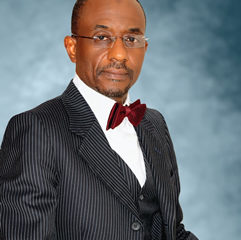
 11 years ago
11 years agoProfile of Sanusi Lamido Sanusi
-
11 years ago
Profile of Tolulola Ajibike Bayode
-
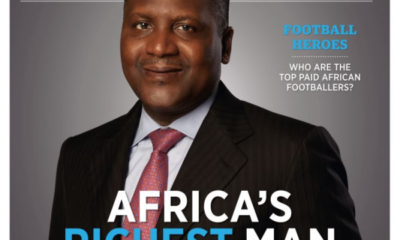
 11 years ago
11 years agoProfile of Aliko Dangote
-
13 years ago
OUTSTANDING NIGERIANS IN 2010
-
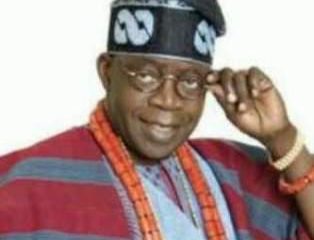
 5 years ago
5 years agoProfile of Senator Bola Ahmad Tinubu
-
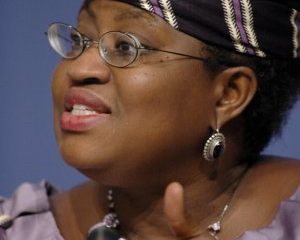
 5 years ago
5 years agoNgozi Okonjo-Iweala -Profile,about her,family and work.
-
5 years ago
20 Most Outstanding Nigerians in 2018

